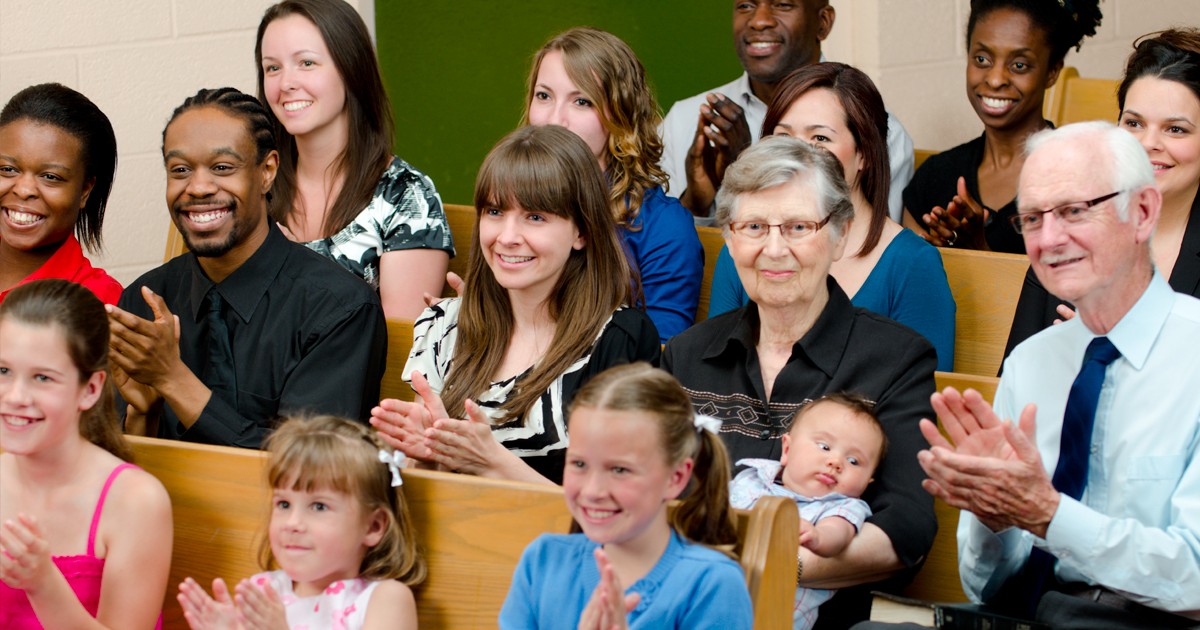 Our God contracted to a span,
Our God contracted to a span,
Incomprehensibly made man.
These lines from a Christmas hymn by Charles Wesley express an important truth: the Incarnation is a mystery beyond human comprehension. While the Councils of Nicaea (AD 325) and Constantinople (AD 381) clearly stated that Jesus was “true God from true God,” they left some questions unanswered about how Jesus could be both human and divine. As a result of this lack of clarity, two heresies evolved, each of which called into question the full humanity of Jesus.
The first was developed by Apollinaris, bishop of Laodicea, who was one of the most vocal defenders of the divinity of Christ. In his eagerness to show that Jesus was truly divine, Apollinaris suggested that, although Jesus had a human body, he did not possess a human mind. Human reasoning is subject to change and development, and Apollinaris argued that the Son of God could not be said to have been subject to such change.
The second heretical approach, centred in Egypt, became known as monophysitism, meaning one (mono) nature (physis). The monophysites, also keen defenders of Christ's divinity, argued that Jesus did not have a human nature, but only a divine nature, because they didn't think it possible that the two natures could be united in one person.
But that was precisely the solution to this problem, as it was ratified by the Council of Chalcedon in AD 451. The definition of Chalcedon said that Jesus is “complete in his deity and complete—the very same—in his humanity, truly God and truly a human being” and claimed that “the difference of the natures is not destroyed because of the union, but on the contrary, the character of each nature is preserved and comes together in one person.”
Since that time, nearly all Christian traditions have agreed that Jesus Christ should be said to have two natures—human and divine—in one person.
I say nearly all, because not all Christians accepted the decision of Chalcedon, including some traditions which survive to this day, such as the Coptic Orthodox Church. The mainstream orthodox theological tradition, however, rejected the Apollinarian and Monophysite positions for good reason. Both of these approaches to the doctrine of Christ lead down the same dangerous path of denying the full humanity of Jesus Christ.
Jesus Christ is able to save us because he is divine; but the way he chose to save us was by becoming like us in every way, bringing humanity and divinity together in his very person, and then taking the penalty for human sin upon himself, dying in our place, and rising again as the first-born among many brothers and sisters—the first fruits of the new humanity.
All of this is familiar biblical teaching. Consider, however, how these affirmations are called into question if Jesus Christ is not fully human. If he is not human, how could he have died in our place? How could we expect to participate in the resurrected life that he has pioneered for us?
I believe there are subtle spectres of these heresies in the Church today. Like Apollinaris, today's believers are keen to emphasize Jesus' divinity in response to critics and skeptics who suggest that Jesus was no more than a mere human being. But in our eagerness to assert that Jesus is divine, we sometimes lose sight of his humanity.
Christmas is a good time to revisit this issue. As we remember the virgin birth, the choirs of angels and the star in the East, let's not obscure the very real vulnerability and dependence that Jesus experienced as a newborn infant. Though I enjoy singing Away in a Manger as much as anyone else, I'm not so sure about the line that says, “No crying he makes.” Surely, since Jesus shares in our humanity, there was crying in the manger.
Those of us who affirm the divinity of Christ need not be worried about such displays of humanity by Jesus. In fact, they are an essential part of the gospel story. Jesus, the Son of God, has entered completely into human existence and authored a full redemption for us. It is a great comfort to know that even our tears have been taken up into God's own life.
James Pedlar is a doctoral student at Wycliffe College, in the Toronto School of Theology. He works part-time as assistant co-ordinator of faith and witness at the Canadian Council of Churches. Visit his blog at jamespedlar.wordpress.com. During this series, he will be reviewing five major heresies from the Early Church, and showing how the rejection of these heresies shaped Christianity's central beliefs about creation, the Trinity, Jesus and human sinfulness. He will also explore potential “shadow heresies” that may crop up in contemporary Christian thinking. Cultivating this awareness can help us to faithfully proclaim the gospel today.









Comment
On Tuesday, December 20, 2011, Karen Osborne said:
Leave a Comment